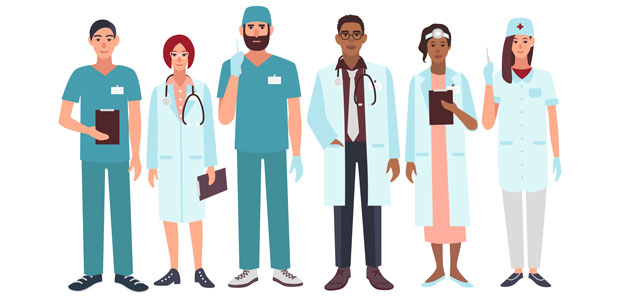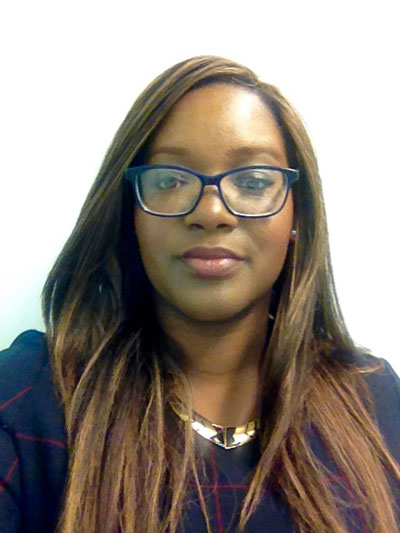
Have life saving adventures: Action on Blood
Action on Blood is a social startup that aims to pool together a global community of blood donors and help people who are interested in giving blood to do so by providing resources, training and funding.
Founder Abiola Okubanjo began to develop the idea for Action on Blood when the stark reality of just how many people in the world die for lack of blood every day.
While living in Nigeria, an NGO approached Okubanjo, asking for her participation on a project looking into why so many people were dying due to lack of blood, and what was originally a three month project turned into a year of work and the first step on the path to creating Action on Blood for Okubanjo.

During this project Okubanjo and her team interviewed the National Blood Transfusion service for Nigeria, World Bank, and the World Health Organisation, during which they discovered that every year Nigeria needs two million pints of blood, but at the moment they only have 150,000 pints.
A stark reality check was served to Okubanjo when during a medical mission she was participating in, she witnessed a woman have an operation to remove her thyroid, and begin haemorrhaging on the table. Okubanjo and her team spent an hour calling every single blood bank in the city of Lagos - which has one of the highest populations in the world - and none of them had any blood. In the end, one of the medical team had to donate there and then in order to save the patient.
As she looked into it, Okubanjo could see that so many of the high mortality rates in Nigeria were being caused by this total lack of blood.
Seeing a problem and wanting to fix it, Okubanjo then set out to do just that.
Okubanjo had to overcome a number of obstacles to set up a bank of blood donors in Nigeria, having to contest with taboos and superstitions again the practice and a mistrust of the healthcare service by the people who lived there. But after much Perseverance, Okubanjo succeeded in working with communities to persuade enough people to give blood, and finding funding to pay the nurses, and take and screen the blood.
After succeeding in Nigeria, Okubanjo and her team each returned to their individual countries, scattering and forming the global network of Action on Blood, with Okubanjo at the helm from England. Okubanjo found that a lack of blood is not a problem confined to the developing world, but that the problem is slightly more nuanced in the UK and similar countries. Here, the problem isn’t that there isn’t enough blood, it that they aren’t the right kind of donors. Okubanjo found that in the UK there are plenty of white donors, but that ethnic minorities donate much less, leading to a shortage, especially in relation to diseases that effected mostly black and Asian people.
Action on Blood aims to tackle the individual problems each country faces in the drive for blood.
Okubanjo was invited to a parliamentary review focusing on strategies to get ethnic minorities to donate more blood, she noticed that they were struggling, and had been for years. She also figured out why. The review was making the far too common mistake of lumping all ethnic minorities together. When they said ethnic minorities, Okubanjo wondered if they were talking about an elderly Indian woman who doesn’t speak English and barely leaves her house, or a young, trendy Asian guy who was born here and sees himself as British. The same message was clearly not going to work for both of them - and more likely work for neither of them as they aimed for some all-encompassing, vague middle ground. But they weren’t finding out what worked for individuals, and they genuinely were not targeting their project any more clearly than the massive umbrella of ‘ethnic minorities’.
In this, Okubanjo found another problem that she wanted to fix.
Action on Blood is brought to life on the realisation that everyone is different, and that there is no one blanket way that Action on Blood connects with it communities, because all communities are different.
In her work to engage with minority communities, both in the UK and outside of it, Okubanjo has begun to engage with tech to in turn engage with her communities, with three main projects currently on the go.
Okubanjo did a competition aimed at startups and presented an app that aimed to get people interested in donating blood, knowing that the idea had potential when she came in second. Her next step was to take the app to the students in an inner city London school and get their feedback, as they were the people the app was aimed towards. Okubanjo was surprised to find that they responded against an app and suggested a computer game instead. Working with these kids, Okubanjo is helping them to develop an interactive decision making game which revolves around the theme of donating blood and saving lives, using other decision based games as an example for how emotionally investing and effective these kinds of games are.
The game project is growing rapidly and is currently in development, with NHS Blood and Transplant on board, expanding the initiative by inviting Black Girls Code into the project. Investors in Nigeria also took an enthusiastic enough interest to organise an international hackathon involving both The World Health Organisation and large gaming companies such as EA. What started off as a little idea with a group of inner city boys is now spreading across the whole of Africa.
Another project Okubanjo has on the go is a competition app with Warner Brothers. The competition on the app involves participants singing or rapping to the rhythm and beats on the app about blood donation. The winner of the competition will get a chance to record their song at Warner Brothers’ studio.
Okubanjo is also reaching out to her communities via music in another way, by linking up with popular grime artists through Mixtape Madness. With Action on Blood the grime artist are able to detach themselves from some of the negative connotations associated with their genre and instead do something to help their community.
The other tech project Okubanjo is currently working on to try and engage communities in donating blood is a cash card project linked with a bank out in Africa, to offer real rewards to people who might have to travel a fair distance to donate blood, and simultaneously help to get more people living in Africa banked. The cash card works by giving people rewards that they can access with the card after they give blood, such as discounts on petrol or groceries.
Action on Blood uses technology creatively to reach the different markets they need to donate blood to solve the shortage.
Okubanjo talked about what she encountered as a woman not only in tech, but in the wider business arena, her history in business giving her a much wider reaching view of women in industry, and finding that women and minorities constantly have to prove that they belong, whereas men, and more specifically white men, can work a lot less hard, and still never have their presence questioned.
“We never ask men to make a choice between a family and a career, even though they have kids too. I think society needs to do more, and men need to do more too, because if they can do more then it lets us have a more equal balance of labour. There is going to be sacrifices and it’s unfortunate that only women have to make those sacrifices and men don’t. I think there is a long way to go.”


